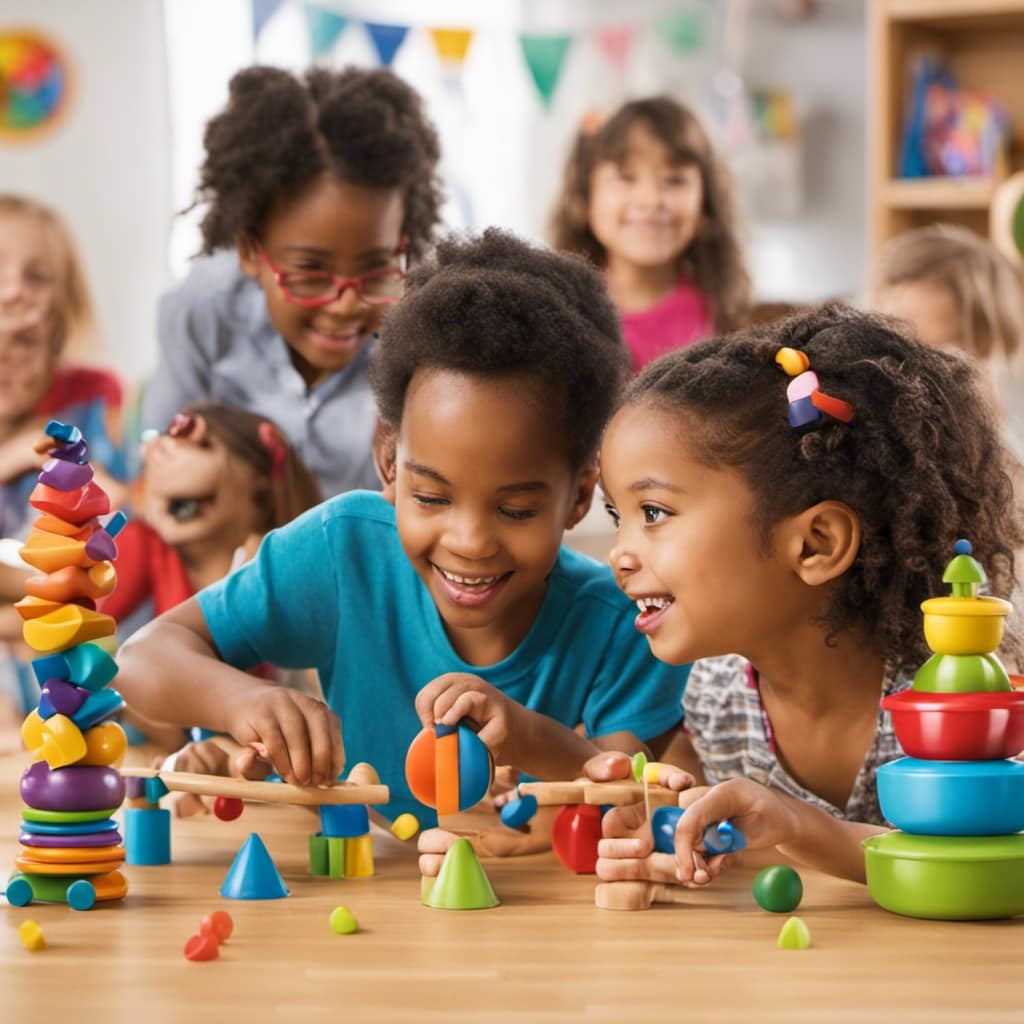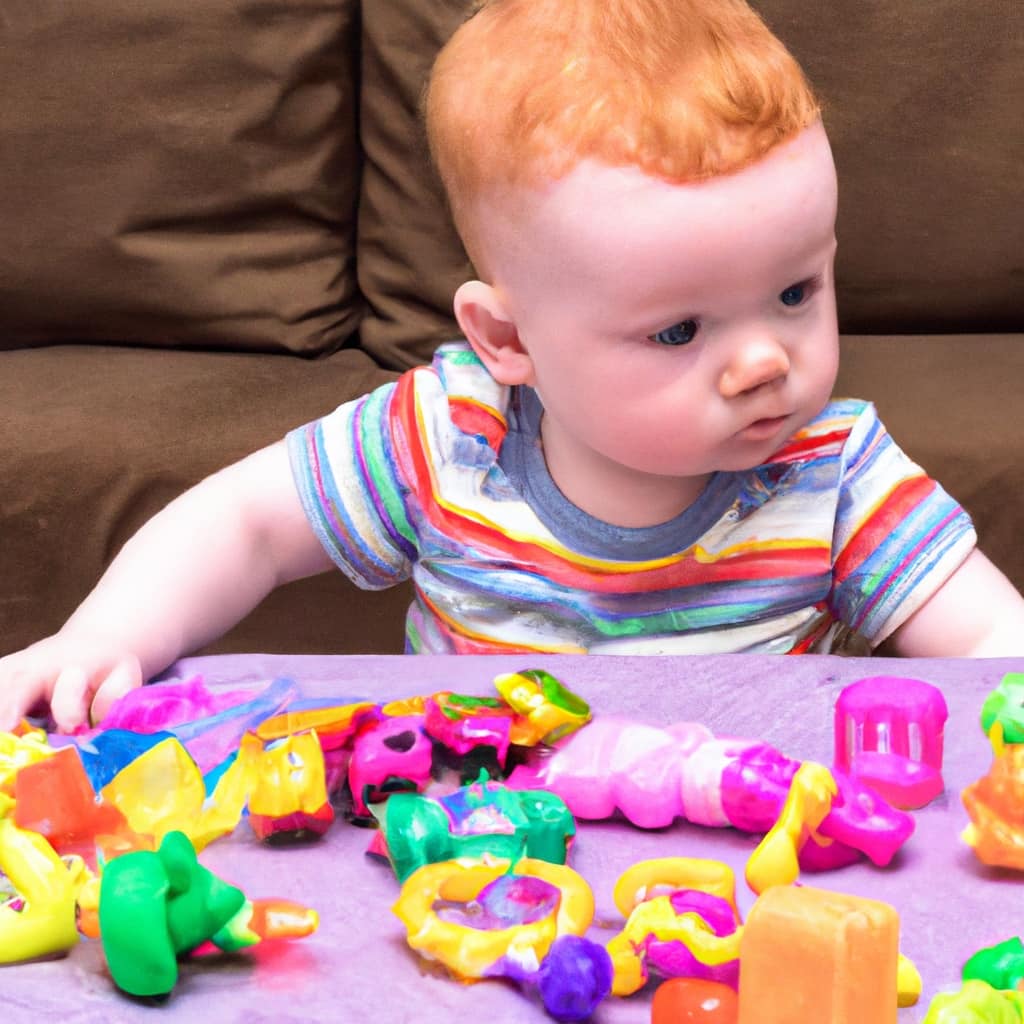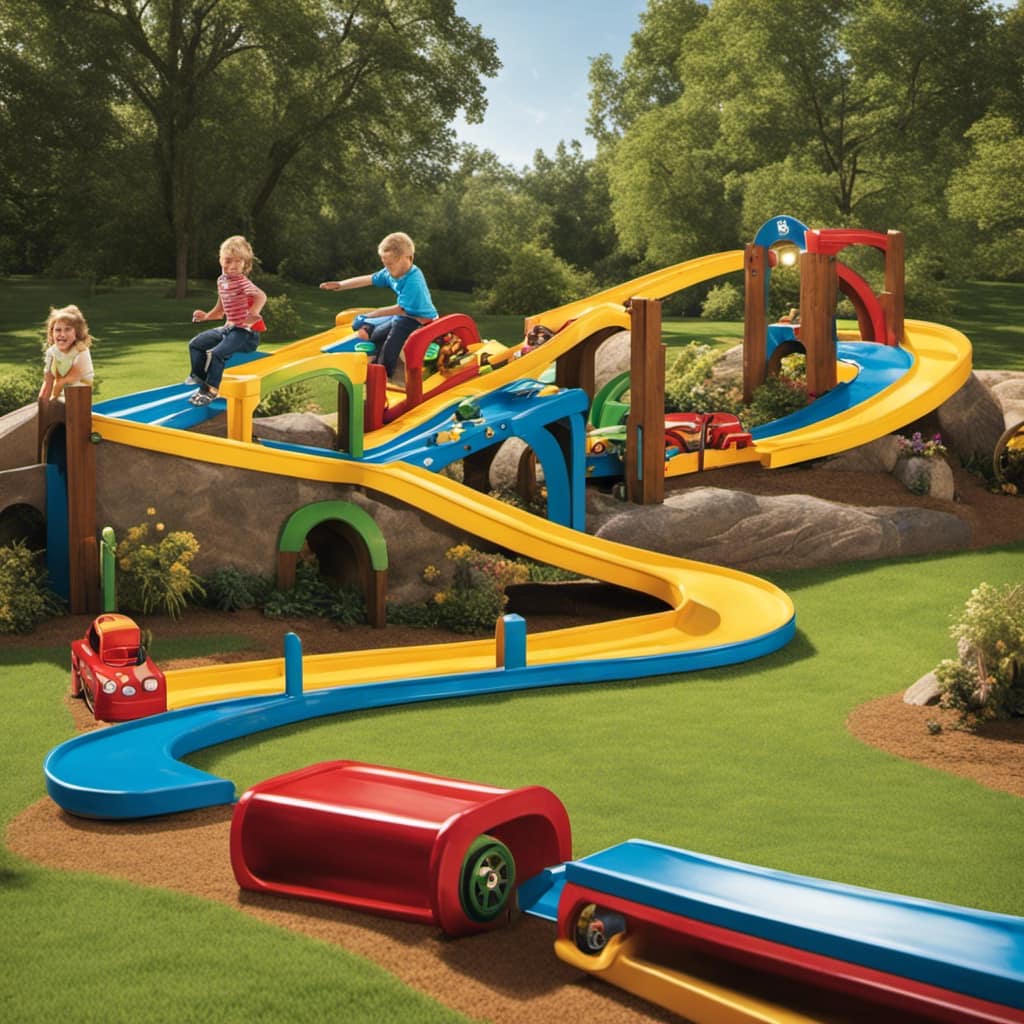As a parent myself, I’ve firsthand knowledge of the critical importance early childhood development has in setting the foundation for a child’s later achievements. It involves more than mere physical growth; it’s also crucial in fostering their cognitive abilities and emotional well-being. The brain development occurring in these initial years is essential for laying the base for future educational accomplishments and the capability to overcome obstacles.
That’s why creating a nurturing environment and promoting language development from the start is so important. In this article, we’ll explore the key milestones, the role of parents, and strategies for fostering growth and learning in those crucial early years.
Key Takeaways
- Early child development encompasses physical, cognitive, and emotional growth, including motor skills, language abilities, problem-solving capabilities, and emotional regulation.
- Parents play a crucial role as primary caregivers and first teachers, shaping early experiences and fostering language and physical development.
- Brain development in infancy has a long-term impact on a child’s success, and early cognitive milestones provide building blocks for future learning and problem-solving skills.
- Caregivers create a nurturing and stimulating environment for a child’s growth, promoting emotional development through responsive caregiving, enhancing communication and cognitive abilities through a language-rich environment, and providing stability and support for physical and emotional well-being.
The Importance of Early Brain Development
I believe that early brain development is crucial for setting the foundation for future learning and problem-solving skills.
Research shows that the brain is highly plastic during the early years, meaning it has the ability to change and adapt based on experiences and stimuli.
This period of brain plasticity is particularly important for early learning. During infancy, the brain forms connections that aid in learning and problem-solving skills later in life.
It is during this time that cognitive milestones, such as recognizing familiar voices and faces, babbling, imitating sounds, and understanding object permanence, are achieved.

These early cognitive milestones provide the building blocks for future learning and problem-solving abilities.
Therefore, providing a nurturing and stimulating environment during the early years is essential for optimizing brain development and promoting lifelong learning.
The Role of Parents in Early Child Development
As parents, we play a crucial role in shaping our child’s early experiences and fostering their emotional well-being. Parent-child interaction and early learning activities are key components of early child development. Research shows that these interactions and activities have a significant impact on a child’s cognitive, emotional, and social development.
Engaging in activities such as reading to our children, playing educational games, and providing opportunities for exploration and discovery can enhance their learning and problem-solving skills. Additionally, creating a nurturing and language-rich environment can promote strong communication abilities.
As primary caregivers, we have the power to shape our child’s brain development in infancy, laying the foundation for their future success. By providing a supportive and stimulating environment, we can help our children reach their full potential and thrive in all areas of development.
Key Milestones in Early Child Development
Creating a language-rich environment and engaging in interactive play are key in promoting the cognitive and social milestones in early child development.

It is important to provide children with opportunities to interact with their caregivers and peers in order to develop social interaction milestones.
Encouraging activities that require fine motor skills development, such as manipulating small objects or using writing utensils, can also support their overall development.
Some key milestones in early child development include developing the ability to take turns during play, showing empathy towards others, and using age-appropriate tools and materials to complete tasks.
Creating a Nurturing Environment for Growth
Caregivers play a crucial role in providing a safe and supportive environment that fosters the emotional and cognitive development of young children. Creating healthy routines and promoting social interaction are key components of nurturing a child’s growth.
| Creating Healthy Routines | Promoting Social Interaction |
|---|---|
| Consistent sleep schedule | Engaging in playdates |
| Balanced diet | Encouraging group activities |
| Regular physical activity | Participating in community events |
| Establishing bedtime routine | Joining social clubs or organizations |
Understanding Cognitive Development in Infancy
I observed rapid cognitive development in infants as they formed connections and achieved important milestones. It is fascinating to witness how their brains develop and how it sets the foundation for future learning.
During the first year of life, significant brain development occurs, with rapid growth and formation of connections shaping cognitive abilities.

Infancy is a critical period for cognitive milestones. These milestones include recognizing familiar voices and faces, babbling, imitating sounds, and understanding object permanence. These early cognitive milestones are essential for long-term success and problem-solving skills.
As caregivers, we play a crucial role in providing a nurturing and stimulating environment that supports brain development. By creating a language-rich environment, promoting responsive caregiving, and establishing healthy routines, we can help optimize cognitive development in infancy.
Nurturing Emotional Well-being in Early Childhood
It is important to foster a supportive and emotionally nurturing environment during early childhood to promote well-being.
Emotional regulation and social interactions are key aspects of a child’s development during this critical period. Research has shown that children who experience positive emotional environments are more likely to develop healthy emotional regulation skills. This includes the ability to recognize and manage their own emotions, as well as understand and empathize with the emotions of others.
Social interactions also play a crucial role in emotional well-being, as they provide opportunities for children to learn how to navigate relationships, resolve conflicts, and develop important social skills.
Promoting Language Development in the Early Years
During the early years, promoting language development is crucial for setting the stage for strong communication skills. As a caregiver, I understand the importance of my involvement in my child’s language development. Research shows that parental involvement plays a significant role in fostering language skills in young children.

Here are three ways I can stimulate my child’s language development:
-
Engage in frequent and meaningful conversations: Talking to my child regularly, using a variety of words and sentence structures, helps expand their vocabulary and language comprehension.
-
Read aloud and encourage storytelling: Reading books together and encouraging my child to tell stories not only enhances their language skills but also promotes imagination and creativity.
-
Provide opportunities for social interaction: Encouraging my child to interact with peers and engage in activities that require communication, such as playdates or group activities, helps develop their social and language skills.
Building Resilience and Problem-Solving Skills in Early Childhood
As a caregiver, I actively foster my child’s resilience and problem-solving skills during their early years. Building social skills and fostering creativity are essential components of their development. By providing opportunities for social interaction and play, I encourage my child to develop their communication and cooperation skills. This can be done through playdates, group activities, and encouraging them to express their thoughts and feelings. Additionally, I promote creativity by providing a variety of materials and engaging in imaginative play. This helps my child learn to think outside the box, problem-solve, and explore their own unique ideas. By nurturing their social skills and creativity, I am equipping my child with important tools for navigating the world and achieving success in their future endeavors.
| Building Social Skills | Fostering Creativity |
|---|---|
| Encourage social interaction and play | Provide a variety of materials |
| Arrange playdates and group activities | Engage in imaginative play |
| Promote communication and cooperation | Encourage thinking outside the box |
| Encourage expression of thoughts and feelings | Support exploration of unique ideas |
Frequently Asked Questions
What Are Some Specific Ways That Caregivers Can Create a Nurturing Environment for a Child’s Growth?
As a caregiver, I can create a nurturing environment for a child’s growth by being emotionally involved and fostering a strong attachment. This involves providing love, support, and consistent care, which promotes their emotional and cognitive development.

How Can Parents Encourage and Support Their Child’s Language Development in Infancy?
As a parent, I can encourage and support my child’s language development in infancy through parental involvement and language stimulation. Talking, reading, and singing to my baby are effective ways to promote early language skills.
What Are Some Examples of Healthy Routines That Promote Physical and Emotional Well-Being in Early Childhood?
Promoting healthy habits in early childhood is crucial for building resilience. Some examples include establishing consistent bedtime routines, encouraging regular physical activity, providing nutritious meals, and creating a supportive and nurturing environment.
How Does Early Brain Development in Infancy Impact a Child’s Long-Term Success?
Early brain development in infancy sets the foundation for a child’s long-term success. It impacts their learning abilities, problem-solving skills, and emotional well-being. Nutrition and play play important roles in supporting optimal brain development.
What Role Do Caregivers Play in Shaping a Child’s Early Experiences and Emotional Well-Being?
Caregivers play a crucial role in shaping a child’s early experiences and emotional well-being. They provide a nurturing environment, promote emotional regulation, and foster positive relationships, which contribute to the child’s overall development and future success.
Conclusion
In conclusion, as a caregiver and first teacher, I am fully aware of the crucial role I play in nurturing the growth and learning of young children.
From the importance of early brain development to promoting language skills and emotional well-being, I understand the significance of creating a nurturing environment that fosters their cognitive and emotional abilities.

Remember, ‘Rome wasn’t built in a day,’ and just like the foundation of a strong building, early child development lays the groundwork for a child’s long-term success.
Through positive experiences and a language-rich environment, we can help children build resilience, problem-solving skills, and thrive in their future endeavors.











